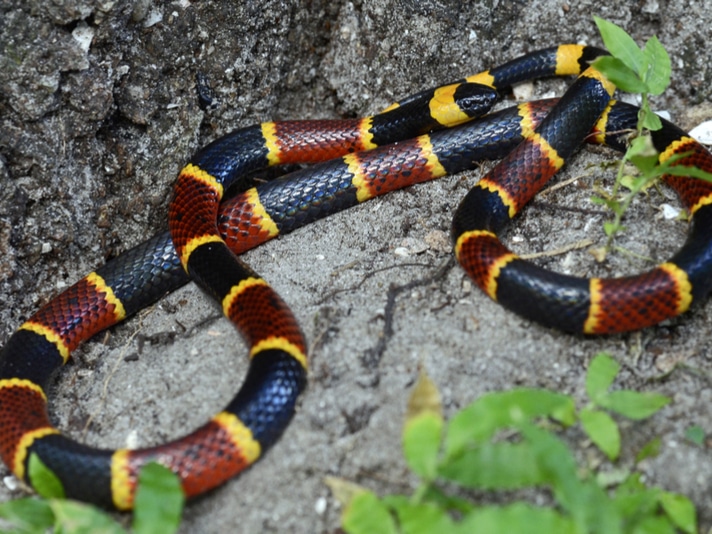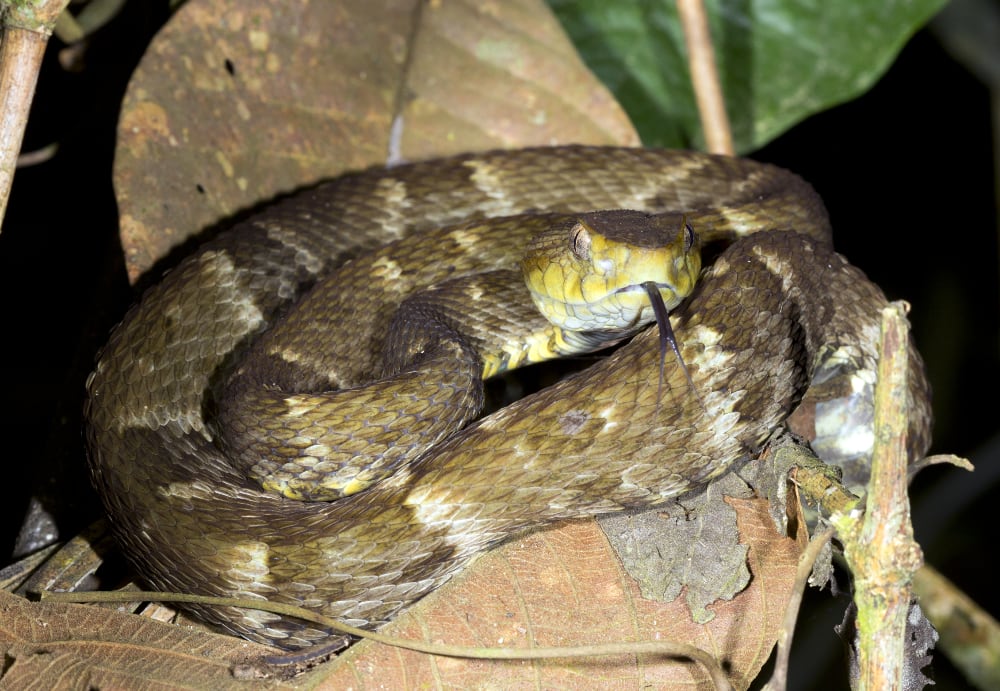The antivenin is currently in pill form, which would make the potential lifesaver available rapidly all over the world.
The quest for a universal antivenin has gotten closer as Duke Health in North Carolina announced that it is a trial site for Varespladib, an antivenin that is designed to treat all forms of venom snakebite regardless of species. If successful, this type of snake bite therapy can be game changing for snakebite victims around the world, especially in remote and rural areas where health care is not easily accessible. Currently there are six test sites in the United States and six test sites in India.
Ophirex, the developer of the snakebite treatment, was awarded Food and Drug Administration Fast Track Designation for its treatment of snakebite. The company is a public benefit biotechnology company.
U.S. Military Doctors Rely On Iranian Snake Antivenin When Soldiers Are Bit In Afghanistan
Promising Venomous Snakebite Therapy Slows Snake Venom Effects For Up To An Hour
“Each year, bites by venomous snakes kill or maim more than 500,000 people worldwide, many of whom are children. They also pose risks to U.S. military personnel at home and abroad. Our urgent mission is to develop more effective and more accessible treatments for snakebite victims. We are grateful the FDA recognizes this need,” Nancy J. Koch, CEO of Ophirex said in a statement released to the media when the FDA fast tracked its antivenin solution. “The Fast Track designation will allow Ophirex to pursue an accelerated review of its snakebite antidote and benefit from additional input from the FDA.”

Eastern coral snakes have one of the most powerful venoms in the United States. Patrick K. Campbell/Shutterstock
The antivenin is currently in pill form, which would make the potential lifesaver available rapidly all over the world. An oral solution would ease the administration of the drug and would also make training of its use easier as well.
Snake Bite Information
According to The Global Snakebite Initiative, 4.5 million people are bitten by venomous snakes every year around the world, with an estimated 125,000 people dying every year.
In Sub-Saharan Africa alone, according to L’Institut de Recherche pour le Développement (IRD), more than 1.5 million people are bit by venomous snakes every year. This results in an estimated 7,000 and 10,000 deaths and 6,000 to 14,000 limb amputations every year. Africa is home to cobras and mambas. Their venoms are neurotoxic in nature and cause respiratory paralysis. Africa is also home to vipers. Viper produce hemorrhagic and necrotic venoms that induces tissue swelling and tissue death in the limbs in which envenomation occurred, and hemorrhaging, which causes death if left untreated.



